Premises Liability
Recreational Use Statute No Bar to Recovery for Mother Injured at Go-Cart Business
In an important victory for an injured mother, the Appeals Court permitted a plaintiff’s negligence claim to survive a motion for summary judgment, overturning a Superior Court judge’s holding that the recreational use statute barred recovery.
Background
On January 14, 2016, the Appeals Court in Amaral v. Seekonk Grand Prix Corp., No. 13-P-1848, slip op. (Mass. App. Ct. Jan. 14, 2016) overturned the decision of a Superior Court judge which immunized a business from liability for personal injuries under the recreational use statute, M.G.L. c. 21, § 17C(a): “Public use of land for recreational, conservation, scientific educational and other purposes; landowner’s liability limited; exception.”
The question on appeal arose when summary judgment was granted to the defendant, Seekonk Grand Prix Corp., a go-cart, mini-golf, bumper car, and arcade business, which was sued by a mother who was injured on their premises.
The defendant argued to the Superior Court judge that the mother was watching her two sons drive go-carts, which constituted a recreational activity, when she was injured on the premises. Specifically, a little girl drove through a fence and struck the plaintiff causing a number of injuries including a pulmonary embolism that resulted from a blood clot in her leg. The defendant noted that the mother did not pay a fee to be on the premises to watch her children drive go-carts and was thus barred from recovery under the recreational use statute.
The Superior Court judge, citing case law indicating that the statute provided immunity from liability when a landowner did not impose a charge or fee for an injured plaintiff’s recreational use of the land, agreed, and granted the defendant summary judgment. See Seich v. Canton, 462 Mass. 84, 85-86 (1997) (holding municipality’s fee to defray expenses for participation in a basketball league did not constitute fee for public use of town land; thus, parent who was injured in a slip and fall while attending daughter’s basketball game was barred from action against town); Whooley v. Commonwealth, 57 Mass. App. Ct. 909, 910 (1997) (barring plaintiff from recovery for slip and fall at hockey rink under recreational use statute because she had free use of the rink for the recreational purpose of spectating her grandson’s hockey game and she failed to show evidence that grandson’s hockey team in fact paid for its use of the rink).
Recreational Use Statute
The Massachusetts recreational use statute provides that those who make their land available to the public for “recreational . . . purposes without imposing a charge or fee therefor, . . . shall not be liable for personal injuries. . . sustained by such members of the public . . . in the absence of wilful, wanton, or reckless conduct by [the landowner].” M.G.L. c. 21, § 17C(a).
On the other hand, § 17C(b) states that “[t]he liability of any person who imposes a charge or fee for the use of his land by the public for the purposes described in subsection (a) shall not be limited by any provision of this section. For the purposes of this section, ‘person’ . . . shall include, without limitation, . . . [a] corporation, company or other business organization . . . .”
No Definitive Definition of Recreational Use
The Appeals Court in Amaral noted that the term “recreation” was not defined by statute, nor had it ever been defined by the Supreme Judicial Court. Dicta in Catanzarite v. Springfield, 32 Mass. App. Ct. 967, 967 (1992) construed the term “recreation” to include “passive pursuits, such as watching baseball,” but the Supreme Judicial Court “prefaced this remark by stating that it had ‘never defined the term.'” At least one other Appeals Court case cited the dicta in Catanzarite but “in a manner that leaves in some doubt its own views of the principle.” Nantasket Beachfront Condos. LLC v. Hull Redev. Authy., 87 Mass. App. Ct. 455, 465 n.13 (2015).
Appeals Court Decision: Mother’s Use Was Neither Recreational Nor Free
On appeal, the Appeals Court noted that the plaintiff’s presence on the property was not for a recreational purpose: she was a parent who accompanied minor children, purchased tickets for their use of go-carts, and remained to supervise them. In essence, the plaintiff was using the facility for the recreation of her children, and she paid for that use by purchasing tickets.
The court reasoned that application of the recreational use statute’s immunity provision would undermine the very purpose of the statute: “to encourage landowners to permit broad public free use of land for recreational purposes by limiting their obligations to lawful visitors under the common law.” Furthermore, the court noted that the mother purchased the tickets for use of the go-carts, tickets which she could have conceivably used herself.
Because the plaintiff was charged a fee for her particular use of the land, her use was not free. Nor was her activity–monitoring her minor children while they drove go-carts–recreational in nature. Therefore, summary judgment was not appropriate. The judgment of the Superior Court was vacated and the case remanded for further proceedings consistent with the Appeals Court’s decision.
Conclusion
Individuals should be mindful that their use of land designed for public recreational use, free of charge, comes with the caveat that the landowner may not be responsible for any personal injury absent wanton, willful, or reckless conduct. Always proceed with caution when engaging in pickup sports games, or recreational activities that could lead to personal injuries. If you or someone you know has been injured, do not hesitate to contact the attorneys at Breakstone, White & Gluck, PC of Boston for a free consultation.
About Reza Breakstone
Reza Breakstone joined Breakstone, White & Gluck as an associate in 2015. Reza has earned a reputation as a tough and tenacious litigator helping both individuals who have been personally injured and burgeoning companies who have had insurance and contract disputes. After law school, Reza joined the Boston office of Mintz Levin, where his practice encompassed complex business litigation, federal antitrust defense, and securities litigation.While at Mintz Levin, Reza received a fellowship to serve as an Assistant District Attorney with the Suffolk County District Attorney’s Office, working out of the West Roxbury Division of the Boston Municipal Court. In this year-long fellowship position, he prosecuted a wide range of criminal offenses and gained valuable in-court and trial experience having tried seventeen cases before a judge or jury, and securing convictions in a majority of his trials before a jury. Read his bio.
What to Know About Food Poisoning After the Chipotle Restaurant Norovirus Outbreak
 The Chipotle Mexican Grill in Cleveland Circle in Brighton remains closed after a norovirus outbreak, which has reportedly sickened more than 120 Boston College students.
The Chipotle Mexican Grill in Cleveland Circle in Brighton remains closed after a norovirus outbreak, which has reportedly sickened more than 120 Boston College students.
Most of us eat at restaurants and trust they are safe. But there are hidden risks for food-borne illnesses and food poisoning, such as unsafe handling of food, not keeping the premises clean, and allowing sick employees to work. While some illnesses pass in a day or two, others are more serious and results in visits to the ER, hospitalization and even death.
If you suspect food poisoning, it is important to visit a doctor and depending on the length and severity of your symptoms, consult an attorney about your legal rights.
The Chipotle Boston Case
Chipotle restaurants in the northwest and Maryland have recently been linked to 52 cases of E. Coli food poisoning. But the City of Boston’s initial testing showed the presence of norovirus at the Chipotle in Brighton.
The Brighton restaurant closed Monday after Boston College reported 30 students, including members of the men’s basketball team, became sick after eating there. A college spokesman has since raised the number to more than 120 students. City inspectors have cited Chipotle with three violations, including allowing a sick employee to work a few days prior to the outbreak and cooking chicken and steak below the required temperature of 140 degrees.
Norovirus causes acute gastroenteritis, the inflammation of the stomach or intestines or both. Symptoms include stomach pain and cramping, diarrhea, vomiting and headaches. E. Coli can have similar symptoms, but norovirus is a viral infection and cannot be treated with antibiotics. Doctors often encourage those who are infected to drink plenty of fluids as they recover to prevent dehydration. Norovirus is not typically fatal.
Boston College has tested its students for both E. Coli and norovirus, but test results have not been released publicly.
What to Know About Food Poisoning, Medical Care and Your Legal Rights
Food poisoning is more common than many realize. Each year, 48 million (or 1 in 6) Americans suffer some form of food poisoning, according to the Centers for Disease Control and Prevention (CDC). While some cases make the news, many do not, even though 128,000 people are hospitalized and 3,000 die each year from foodborne illness.
How Common is Norovirus?
Each year, 19 to 21 million people in the U.S. suffer norovirus, according to the CDC. Doctors treat nearly 2 million people as outpatients and another 400,000 people have to seek care from hospital emergency rooms.
How Long Will Norovirus Symptoms Last?
Symptoms often appear after one or two days and individuals may be sick for two to four days.
Where is Norovirus a Risk?
You can contract norovirus by contact with an infected person, touching infected surfaces or when an infected person handles food. It is airborne and can stick to surfaces. Because of this, norovirus can spread quickly in places where large numbers of people gather and pass through, such as restaurants, schools and daycare centers.
Last spring, more than 200 people contracted norovirus on two Royal Caribbean cruise ships.
Can I Sue for Food Poisoning and Norovirus?
As with any injury caused by someone else’s negligence, you may be able to file a lawsuit if you suffered food poisoning. But you should consult an experienced personal injury attorney to advise you on the law and your specific circumstances.
Read More
Will It Ever Stop Snowing in Massachusetts?
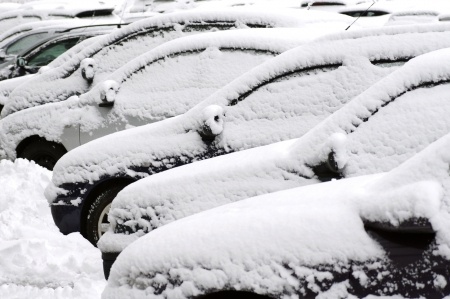
More snowfall today just means more frustration for many of us in Massachusetts. Before today, the Boston area had already seen more than 53 inches of snow this winter, 10 inches more than the total annual average. Worcester is also close to setting a record, recording 72 inches, just four inches away.
Much of the snow has fallen hard during the past two weeks, during the Blizzard of 2015 and other storms. A Washington Post headline summed it up best: “Boston’s record-setting snow blitz – a winter’s worth of snow in less than 10 days.”
Those 10 days should be done now. But Mother Nature just keeps throwing down snow, though she gave the Patriots a reprieve, allowing them to hold their Super Bowl parade in Boston this week. But even the professional football team had to postpone a day to avoid the bitter cold and to let the City of Boston catch up on the clean-up.
More snow is expected this weekend. A few things to remember:
Clearing Snow from Your Property. Homeowners in Massachusetts have a responsibility to clear the snow and ice from their driveways, walkways and other areas of their property. It is important to make sure your family and others, such as friends, postal carriers and delivery workers, can safely visit your property without slipping and falling.
If someone slips and falls on your property, you could be held liable for damages, even if they are uninvited. For a long time, Massachusetts law regarding snow and ice injuries exempted property owners from liability if someone was injured as a result of snow that naturally accumulated and had not been cleared. But in 2010, the Supreme Judicial Court overruled this nearly century old rule. There is now a clear directive that Massachusetts property owners must remove snow and ice. The case is Papadopoulos v. Target Corporation, SJC-10529 (July 26, 2010). Here is a past blog and a Lawyer Alert we wrote on the ruling.
Snow Blower. Make sure you read the instructions and understand your snow blower before using it in heavy snow conditions. If the snow blower is jammed DO NOT attempt to clear it by hand. Even if the blower is not running, it can have stored up mechanical energy that can deliver devastating injuries. Check with the manufacturer and the Consumer Product Safety Commission at the start of each winter to see if there have been any product recalls.
Here is a resource for safe use of snow blowers.
Shoveling Snow Safely. While you must clear the snow, you also have to be safe. Snow removal can lead to injuries, some minor and some very serious, such as heart attacks, dehydration, pulled muscles, broken bones from slip and falls and frostbite. Always consult with your doctor if you concerned about your ability to undertake this strenuous exercise.
If you shovel, drink plenty of water, stop periodically to stretch and dress in layers so you can easily remove one if you get overheated. Try to push the snow, rather than lift it, when you can. Here is an article about shoveling snow safely.
Driving and Taking Public Transportation. Be patient. Limit your time on the road if you can. The Governor of Massachusetts declared a state of emergency and travel ban during the recent blizzard. Many employers closed their offices then and since on other days of heavy snowfall.
When you have to travel, consider public transportation when you can or stagger your work day schedule if it helps and your employer allows this.
If you ride the MBTA, monitor the website, app or local TV stations. Red Line and Orange Line commuters faced significant delays this week, with 40 percent of the cars disabled for mechanical problems. Many commuters were left standing outside in the cold, waiting for trains or had to take buses. Systems are failing all over the state.
Walking. The snowbanks are tall and the roads narrow in many areas, making it hard to walk. If you must walk outside, wear visible clothing, including a bright safety vest if you have one, so you are visible to drivers. Walk on sidewalks and carefully look around snowbanks before stepping into the streets, even at crosswalks.
Watch out for regular traffic, as well as snow plows. A Weymouth woman was killed in a pedestrian accident this week when she was struck by a plow driver at her condominium complex.
Carry your cell phone in case of an emergency but do not use it while walking. Also do not wear headphones and listen to music when trying to face the complications of winter travel.
Read More
City of Boston Will Inspect Addresses Where Students May Be Living in Overcrowded Conditions
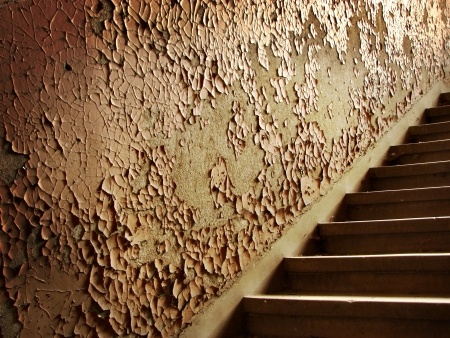 The City of Boston has identified 580 potentially overcrowded student apartments across the city from data provided by colleges and universities, The Boston Globe recently reported. City inspectors will now investigate whether the units are violating city zoning rules, which bar more than four full-time undergraduate students from sharing the same apartment.
The City of Boston has identified 580 potentially overcrowded student apartments across the city from data provided by colleges and universities, The Boston Globe recently reported. City inspectors will now investigate whether the units are violating city zoning rules, which bar more than four full-time undergraduate students from sharing the same apartment.
The city recently collected more than 25,000 student addresses from 31 colleges and universities so it can investigate potential apartment safety violations and overcrowding. If overcrowding is found, city officials plan to work with landlords and universities to move students to safer, alternate housing.
In 2013, Boston University student Binland Lee died in an apartment fire in Allston. She had been living at the Linden Street building with more than a dozen other people, a violation of city zoning rules. The Boston Globe Spotlight team later reported the property had been converted to a two-family home after a previous fire in the 1990s. This move blocked off a central staircase and restricted access. The building owner, Anna Belokourova, was later cited for running an illegal rooming house and not obtaining the permits needed to create bedrooms in the basement.
The Lee family has filed a wrongful death and premises liability lawsuit against Belokourova as well as Gateway Real Estate Group, which rented the apartment to her and six other housemates. Attorney Ronald E. Gluck of Breakstone, White & Gluck represented another woman who was seriously injured in the same fire.
In 2014, the Boston Globe Spotlight team investigated and found other instances of unsafe and crowded conditions for Boston students. It surveyed 266 students who lived off-campus in Boston and found nearly one-third were living in units with at least five undergraduate students, a violation of city zoning law.
Also from the survey:
- 25 percent of students reported having trouble reaching their landlord to report safety concerns
- 20 percent reported living without functioning smoke alarms
- 33 percent reported a lack of heat in their apartments
As these safety violations happen, more students are coming to Boston and living off-campus than in the past. Colleges are facing a space crunch and neighbors have opposed many of their efforts to build new dorms. The Boston Globe estimated more than 45,000 Boston students lived in off-campus housing in 2013, a 36 percent increase from 2006.
Our attorneys have represented Boston college students and other tenants who have suffered serious injuries as a result of housing code violations and overcrowding conditions. Here are summaries from two recent cases:
Overcrowded Student Housing Fire in Allston, Massachusetts
Our attorneys represented a woman who was seriously injured in a 2013 fire in an illegal apartment in Allston, Massachusetts. More than a dozen college students were living at the home in violation of city zoning ordinances. Read about this case.Students Injured in Escape from Quick-Spreading House Fire
Our attorneys represented one of two college students who were seriously injured a single-family home fire in Boston. One student suffered a brain injury when he jumped from a third-floor window to escape and landed on a concrete driveway. The other student broke her back and injured her ankle when she jumped off from the second floor. The case was settled at mediation. The case was reported by Massachusetts Lawyers Weekly on May 29, 2014. Subscription required.
Replace Your Smoke Alarm Batteries As Daylight Saving Time Ends
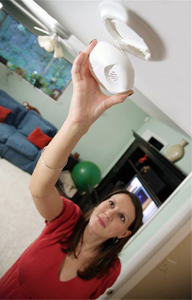 Many of us are thinking about Halloween today. But Daylight Saving Time also ends this weekend. While setting your clocks back, remember to replace your smoke alarm batteries and test to make sure they work properly.
Many of us are thinking about Halloween today. But Daylight Saving Time also ends this weekend. While setting your clocks back, remember to replace your smoke alarm batteries and test to make sure they work properly.
As we approach winter, we increase use of electrical appliances and the risk for home heating fires rise. In fact, half of all home heating fires happen in December, January and February. The death rate in homes with no working smoke alarms is twice as high as those with alarms, according to the National Fire Protection Association. Often, homes have smoke alarms but the batteries are missing disconnected or dead.
Make as many of these safety checks as you can this weekend:
Smoke alarms. Replace your smoke alarm batteries in every unit of your home and smoke alarms which are 10 years old. Also check if your smoke alarm model has been recalled. Kidde recalled 1.2 million smoke and carbon monoxide alarms in September. You can search for other recalls at www.cpsc.gov.
Carbon monoxide detectors. The state of Massachusetts began requiring carbon monoxide detectors in every residence in 2006 and many home owners have passed the 5-7 year lifespan of their models. Check if yours needs to be replaced. If you have a combination smoke alarm/carbon monoxide detector, check the unit’s specific instructions.
Washing machines and dryers. Clothes dryers are responsible for many home fires, but most can be prevented by regularly checking and cleaning the filters. Clean your models out now.
Cooking. Unattended cooking is the leading cause of cooking fires. Clear out any clutter in your kitchen now so you have plenty of room to set out your ingredients in advance. Find a cabinet or drawer to store anything you may need so you do not have to leave the room while cooking. Make sure you have a functioning fire extinguisher.
Home heating. Arrange for oil delivery or have your chimney or wood stove professionally cleaned. If you are using a space heater, take a few minutes to read our home heating safety tips. Each year, space heaters cause 80 percent of home heating fire deaths and one third of all home heating fires.
Get ready for the snow. Get your snow hat, gloves, shovel and road salt ready now and set them aside in the same place throughout the winter. When it snows, you want to be able to easily find them so you can clear your front steps and driveway so no one slips and falls in the snow and ice.
Cords. Walk through every room of your home and see what is plugged into the electrical outlets. Look under beds, behind computers, in power supplies and in your children’s rooms. Unplug cords you are not using and put them in a drawer until you need them. Pay extra attention to the USB cords for your tablets and cell phones and replace them if they look old or worn.
Get your car ready. Take a few precautions and reduce the stress of traveling in the snow. Collect and pack away ice scrapers and small shovels as well as an extra hat, pair of gloves and clothing in case you become stuck while traveling. Also pack a couple flashlights, a non-perishable snack, such as a granola bar, and make sure all your vehicle paperwork is easily accessible in the glove compartment.
Read More
Pool Safety Starts with Your Pool Fence
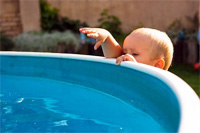
As a pool owner, you have a responsibility to secure your pool with a strong, adequate fence. Many property owners do so because it is the law and to prevent neighborhood children or trespassers from breaking in. But they may have a false security when it comes to friends, families and young children they invite over.
Many pool accidents and drownings actually involve invited guests, people we may know well and have over regularly. Let them enjoy your home, but block unrestricted and unsupervised access to your pool.
The Consumer Product Safety Commission (CPSC) conducted a survey of swimming pool accidents in Arizona, California and Florida. Data showed drowning was the leading cause of accidental death in and around the home for children under age 5. Most of these children – 75 percent – were between 1 and 3 years old.
Fewer than two percent of pool accidents resulted from children trespassing on the property. More often, children knew the pool owner, with 65 percent of accidents occurring in pools owned by an immediate family member. Another 33 percent happened in pools owned by relatives and friends.
More telling is what happened before these accidents:
- Most of the children were being supervised by at least one parent when they drowned
- Nearly half of the children were last seen in the house before the pool accident occurred
- Another 23 percent were last seen on the porch or patio, or in the yard
- Some 77 percent of children had been missing for 5 minutes or less when they were found
Adding an extra layer of fencing may make a difference in preventing these accidents.
Pool Fence Recommendations
- Self-Closing. A pool fence should be self-closing and self-latching. It should open from the pool side and should be maintained so it can easily latch.
- Fence Height. A pool fence should be at least four feet tall and four feet above the grade of the ground outside the fence.
- Release Mechanism. You want to prevent children from reaching the latch. When the release mechanism is less than 54 inches above the grade, the release mechanism for the gate should be at least 3 inches below the top of the gate and installed on the side facing the pool. Also, make sure there is no opening greater than ½ inch within 18 inches of the latch release mechanism.
- Bottom of the Fence. If your fence stands on a concrete surface, the clearance between the bottom of the fence and the ground should not exceed four inches. For fences on softer surfaces, such as grass, the maximum clearance is two inches.
- Fence Spacing. The space between the vertical fence slats should not exceed four inches.
- Chain Link Fences. For chain-link fences, the diamond-shaped openings should be no larger than 1 ¾ inches.
- Decorative Fences. Fencing with decorative openings should follow the same standard as chain link fences and not exceed 1 ¾ inch.
- Backyard Doors. Massachusetts requires pool alarms when doors from a home open into a pool enclosure area. For instance, if there are three sides of fencing around the pool and the home serves as the fourth side.
- Pool Alarms. Purchase a pool alarm even if you are not required to by law. Pool drownings happen quickly and often silently. A pool alarm interrupts that process and provides you warning if someone is entering the gate.
- Above Ground Pools. For above ground pools, build a fence on top of the structure as a barrier. Remove or lock the pool ladder when not in use. For another layer of protection, you can also add a fencing structure around the ladder and lock that when not in use.
- Pool Covers. Consider a power pool safety cover to add another layer of protection. Purchase one which conforms to the specifications in ASTMF 1346-91.
Related:
Safety Barrier Guidelines for Home Pools, Consumer Product Safety Commission
About Breakstone, White & Gluck
Our Boston personal injury lawyers have over 100 years combined experience handling personal injury and premises liability claims, including swimming pool accidents. If you or a family member has been injured, it is important to learn your rights. For a free legal consultation, contact us at 800-379-1244 or 617-723-7676 or use our contact form.
Talk to Your Loved Ones About Supervising Children by the Pool. This is the Most Important Job of Summer.
The long and lazy days of summer are finally here and many of us are spending them by the pool. We hope you enjoy these times with your friends and family. And please remember to think about safety.
Each year in the U.S., nearly 5,000 children under age 15 are treated for pool- or spa-related injuries at hospital emergency rooms, according to the Consumer Product Safety Commission (CPSC). Nearly 400 children under age 15 are killed in swimming pool and spa drownings. More than 75 percent of these children are under the age of 5 and the majority of these deaths occur at private residences. But injuries can happen at any pool where someone stops paying attention or is negligent, including hotel swimming pools, community centers and other places.
Prevent injuries this summer by talking about the rules of safety with your family and friends.
Pool Owners. You have a responsibility to keep your pool area safe for family and invited guests and to secure it from others. You must keep your pool behind a fence which is at least four feet tall and secures with a self-latching and self-closing gate. But we encourage you to go a step further. Try walking around your fenced-in pool area. Are there areas where a young child could easily get in on their own? If so, make adjustments.
If you have questions, a good resource is your town’s local building department.
Drain Covers. Keep children away from pool drains, pipes and other openings which could cause entrapment.
Home Spa Safety. If you have a home spa, install and use a child-proof locked safety cover to keep children out.
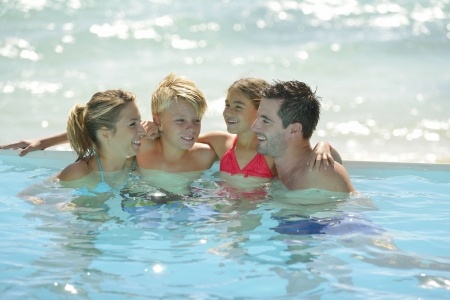
Watch Children Closely. Before the swimming season, learn CPR. Then when you head to the pool, set aside all distractions and watch the children. Avoid distractions such as reading, cell phone calls, and texting–supervision should be treated like a job.
When supervising young children, swim with them and practice “touch supervision.” For older children, watch them and be involved with them even if you are not swimming. Talk to them and let them know if they are doing something they should not be. If you are part of a group of adults watching children swim, designate someone the “pool watcher” so that the children are supervised at all times. But still supervise your own children at all times.
Likewise, at hotel and community pools, do not rely on lifeguards to watch your children.
Dress Children Appropriately. Make sure children are not wearing swimming suits or hair accessories that can get caught in pool drains or other openings.

Poolside Toys. Many pool accidents involve diving board, sports equipment, rafts and pool slides. Always look before you use. If something looks unsteady, do not use it.
Many pools no longer have diving boards because homeowner’s insurance companies have stopped providing coverage for them. But if you are going to dive, make sure the water is at least 10 feet deep.
Avoid portable pool slides, inflatable toys and using backyard trampolines with the pool. These products may not be designed for use with a pool or may be defective. In one Massachusetts case, a Colorado woman visiting the state died in 2006 after she slid down a Banzai brand inflatable slide at a backyard pool. It partially deflated, causing her to strike her head on concrete by the pool. The Consumer Product Safety Commission later recalled 21,000 of the Banzai brand inflatable slides and continues to recall unsafe pool toys and equipment each year.
Broken Glass. Do not bring beer bottles and glass out to the pool. Serious accidents can happen if the glass breaks in or near the pool and someone steps in it. If there is broken glass in the pool, it will be invisible and therefore impossible to find safely. Beyond injury, you will have a lot of clean-up. First you will have to drain the pool and then you will have to sweep it thoroughly.
Read More
Massachusetts Property Owners Have a Legal Responsibility to Clear Snow and Ice
If you are a property owner, today is a good time to inspect your driveway and walkways. Even if you worked hard to clear all the snow yesterday, go out and take a second look. The deep freeze is setting in and more snow is forecast for tomorrow, creating the potential for slip and fall accidents.
Why is this important? In addition to making it easier for your family to come and go from your home, you have a duty to use reasonable care to clear snow and ice under Massachusetts law. If you neglect this, you could be liable for any injuries that result.
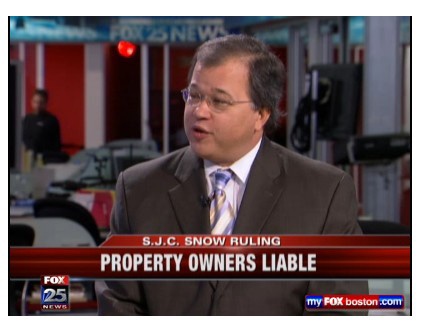
Massachusetts Law on Snow and Ice Removal The law for clearing your property is more strict than in past years. It changed in 2010, with the Massachusetts Supreme Judicial Court’s decision in Papadopoulos v. Target Corporation, SJC-10529 (July 26, 2010). View TV interviews from 2010/2011 in which attorney David White explains the law.
Prior to then, property owners were liable for injuries sustained on what was known as “unnatural accumulations” of snow or ice. Examples of this are gutters leaking onto sidewalks or snow piled on sidewalks.
The state’s high court changed the longstanding law so it falls in line with other states. Massachusetts property owners now have a responsibility to keep their premises in a reasonably safe condition and clear all snow and ice, whether it is a natural accumulation by Mother Nature or pushed there by a plow.
This law applies to homeowners as well as commercial property owners.
A few points to remember when it snows:
- You have a responsibility to clear your driveway, sidewalks and other areas accessible to the public.
- If you are using a snow blower, remember a shovel for narrow and hard-to-reach areas.
- Do you have the physical ability and time to clear your snow this year? If not, consider contacting a snow removal company.
- Cities have responsibility for clearing sidewalks, but some have ordinances requiring residents to clear their own. These include Boston, Worcester and Newton.
Safety
We all have to balance our legal responsibility to clear the snow with safety. It is hard work and tempting to take shortcuts at times. Remember a few basic safety rules. Do not start your snow blower in your garage or other covered areas. Before you shovel your driveway, clear your home’s heating vents so carbon monoxide does not build up in your home. Then, make sure you dress in layers and take breaks as needed.
Related:
Snow removal law may face test, Boston Globe, Dec. 25, 2010.
Read More
Remember to Change Your Smoke Alarm Batteries
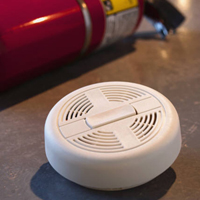 As Daylight Saving Time ends Sunday, we all have a very important chore: changing the batteries in our smoke alarms and carbon monoxide (CO) detectors. The good news is we have an extra hour in the day to get that chore done.
As Daylight Saving Time ends Sunday, we all have a very important chore: changing the batteries in our smoke alarms and carbon monoxide (CO) detectors. The good news is we have an extra hour in the day to get that chore done.
Smoke alarms provide necessary warning for us to act in a fire. Each year, more than 2,200 people die in unintentional home fires in the United States. The greater tragedy is nearly two-thirds of these deaths occur in homes with no smoke alarms or ones which do not work.
Here are a few additional suggestions for Boston and Massachusetts residents:
- You should have working smoke alarms on every level of your home, inside and outside sleeping areas.
- Purchase fire extinguishers for your kitchen, basement, work areas, and garage. Check them every few months to remind yourself of where they are, and make sure they are properly charged.
- Replace smoke alarms every 10 years and carbon monoxide detectors every five years.
- Talk to your family, roommates and landlord about your fire evacuation plan.
- Walk through your home and apartment and practice your fire evacuation plan. In an emergency, you and others may have to pass through unfamiliar areas.
- If you are a Boston college student renting an apartment, make sure you and your roommates are following house rules for cooking and that no one is smoking in the living area.
- Report any potential fire hazards to landlords promptly, including blocked access ways and electrical irregularities.
Pool Guests Swim with Caution
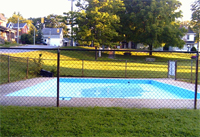
After another long winter here in Massachusetts, many of us are looking forward to some time by the pool. Whether you are a homeowner or a pool guest, take time to consider the rules of safety now so you can enjoy this time of year.
As a homeowner, you have a responsibility to keep your home reasonably safe for your family and your invited guests. If you own a pool, you have additional legal responsibilities to keep the swimming area safe. A safe swimming pool is critically important when children live at home or will be visiting. In fact, one third of all children who die between the ages of one and four are drowning victims in pools and spas, and hundreds more are critically injured.
Massachusetts regulates home swimming pools very closely. Here are some of the legal requirements and some common sense tips for the poolside.
Fencing. The law in Massachusetts requires homeowners to enclose pools with a fence at least four feet tall. It must have a self-closing lock which opens outward from the pool. Homes with a back door that opens onto a pool deck must have a pool alarm.
Diving Boards. Diving into a pool presents the risk of severe personal injury due to head and neck injuries. Diving boards are regulated for their size and height over water, and the water should be at least nine feet deep in the diving area. Shallow areas should be marked to prevent diving board injuries. Many insurance companies will request that your remove your diving board entirely as a safety precaution.
Pool Drains. Ask the pool owner where all the pool drains and suctions are and make sure your child steers clear of them. When a child is pulled into suction, they can become entrapped with a strong force, causing drowning and death. Make sure your child is not wearing any loose hair accessories or a bathing suit with loose straps that could get pulled in. Federal law changed in 2008, requiring public pools to start using drain covers to reduce suction deaths, but private homeowners may not have made the change.
Portable and Inflatable Pools. Though they are much smaller than in-ground pools, portable and inflatable pools can pose serious risks for injury, especially to toddlers.
Pool Slides. Whether it is a fixture or an inflatable, ask yourself if a slide looks like it can support you without tipping over. Ask the homeowner how long they have had the slide and if there have been any problems. In 2006, a woman died in Massachusetts after using a Banzai brand inflatable slide. The now-recalled slide collapsed under her as she slid down. She struck her head and later died.
Watch Children Closely. Give your children your complete attention while they are near the pool. Drowning claims more lives among children ages 1 to 4 than any other cause except birth defects, according to the Centers for Disease Control and Prevention. It is the second leading cause of unintentional injury-related death for children and teens ages 1 to 14. Set aside your cell phone, magazines and other distractions and watch your children. If you are in a group of adults, take turns being the “pool watcher.” Have that person step a few feet away from the conversation and concentrate solely on watching the children.
Poolside Toys. Avoid any toy or equipment that is not meant for use at the pool, including trampolines. Inspect all equipment before use.
Broken Glass. Serious accidents can happen when beer bottles and other glass are used near the pool. Broken glass at the poolside is obviously dangerous, so it makes sense to use only plastic or metal containers near the pool. Glass in the pool is even more dangerous–clear glass simply cannot be seen in the water, and will be a serious hazard to anybody using the pool. If there is broken glass in the pool, the only safe remedy is to drain the pool to sweep it out.


